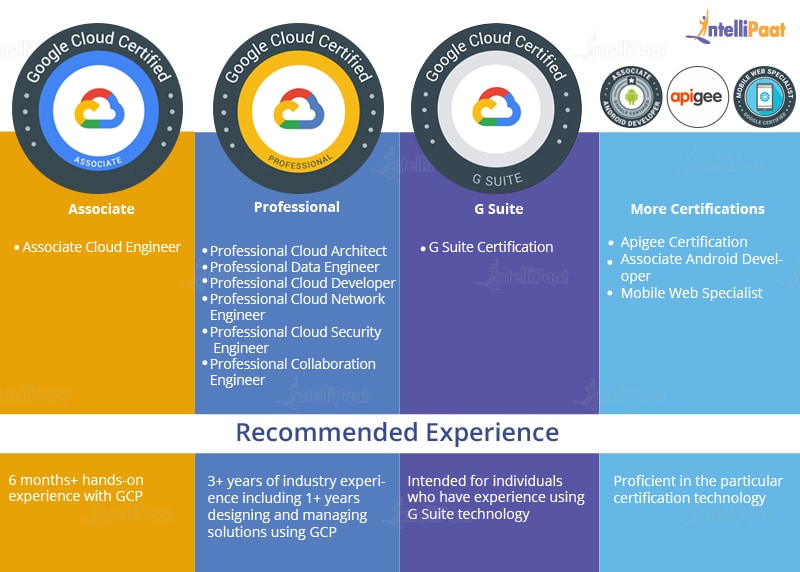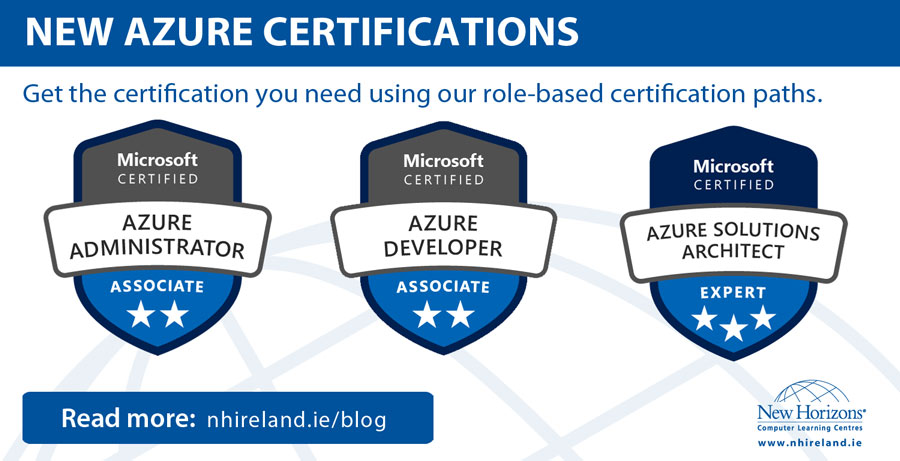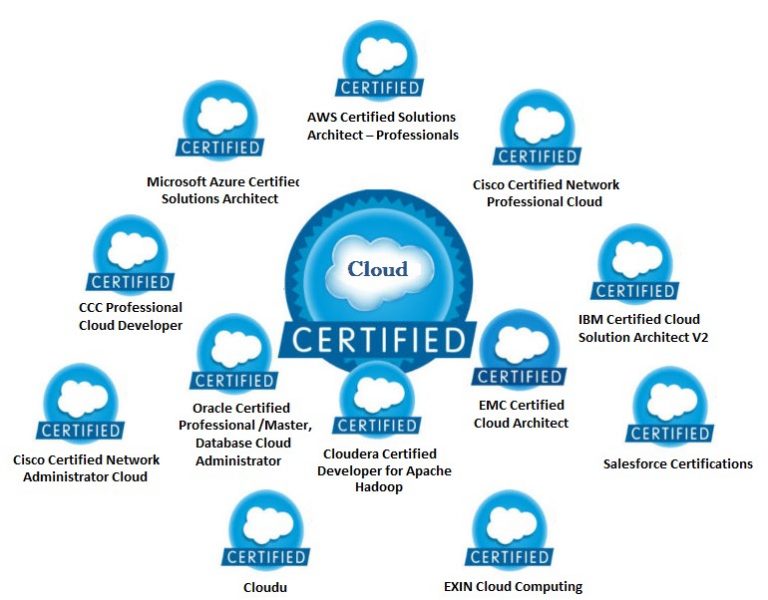What Makes a Cloud Certification “Easy”?
When searching for the “easiest cloud certification“, it is essential to consider several factors. First, a low barrier to entry implies minimal prerequisites and a reduced learning curve. Second, a straightforward certification process involves a clear outline of the steps required to obtain the certification. Lastly, understanding one’s learning style and career goals is crucial to selecting a suitable certification. Some individuals may find self-paced online courses or hands-on labs more accessible, while others may prefer instructor-led training or in-person workshops. Assessing your available time, budget, and desired outcome will help you make an informed decision.
Achieving an “easy” cloud certification is not only about minimal effort; it also serves as a stepping stone for more advanced certifications and validates foundational knowledge in cloud computing. This understanding paves the way for professionals to explore various cloud platforms and discover their unique features and benefits.
Cloud Platforms with User-Friendly Certification Paths
For those embarking on their cloud computing journey, selecting a platform with an accessible certification path is crucial. Popular cloud providers, such as Amazon Web Services (AWS), Google Cloud Platform (GCP), and Microsoft Azure, offer certifications tailored for beginners. Amazon Web Services (AWS) provides the AWS Certified Cloud Practitioner certification, which covers fundamental cloud concepts, AWS services, and security. This entry-level certification is ideal for those new to cloud computing or AWS.
Google Cloud Platform (GCP) offers the Google Cloud Associate Engineer certification, which validates the ability to deploy, monitor, and maintain applications on GCP. This certification is suitable for those with a basic understanding of cloud computing and GCP services.
Microsoft Azure presents the Azure Fundamentals certification, which focuses on cloud concepts, Azure services, security, privacy, compliance, and pricing. This certification is an excellent starting point for those interested in Microsoft’s cloud offerings.
Amazon Web Services (AWS): The AWS Certified Cloud Practitioner
The AWS Certified Cloud Practitioner is an excellent entry-level certification for those new to cloud computing or AWS. This certification demonstrates a fundamental understanding of AWS cloud concepts, services, and best practices. Purpose: The AWS Certified Cloud Practitioner validates an individual’s ability to explain the value of AWS cloud services, understand basic AWS architecture, and describe the security and compliance aspects of the platform.
Requirements: There are no prerequisites for this certification, making it accessible to anyone interested in cloud computing. However, AWS recommends at least six months of exposure to the AWS cloud in any role, including sales, finance, technical, or administrative.
Skills Validated: This certification demonstrates a broad understanding of the AWS cloud, including its global infrastructure, services, security, and compliance.
Exam Format: The exam consists of multiple-choice and multiple-answer questions. Candidates have 90 minutes to complete the exam, which is available in English, Japanese, Korean, and Simplified Chinese. The passing score is 700 out of 1000.
Resources for Preparation: AWS provides a variety of resources to help candidates prepare for the exam, including the AWS Certified Cloud Practitioner Exam Readiness Course, digital training, and practice exams. Additionally, third-party resources, such as online courses, study guides, and forums, are available to support your learning journey.
https://www.youtube.com/watch?v=HK_q1lH5x5M
Google Cloud Platform (GCP): The Google Cloud Associate Engineer Certification
The Google Cloud Associate Engineer certification is an excellent entry-level certification for those new to cloud computing or GCP. This certification demonstrates a fundamental understanding of Google Cloud Platform services and their practical applications. Purpose: The Google Cloud Associate Engineer validates an individual’s ability to deploy, monitor, and maintain applications on GCP. It also covers basic networking, security, and data storage on the platform.
Prerequisites: There are no formal prerequisites for this certification, but Google recommends having at least six months of hands-on experience with GCP. Familiarity with Linux command-line fundamentals, infrastructure, and application deployment is also helpful.
Abilities Certified: This certification demonstrates the ability to use GCP services, manage compute resources, configure access and security, monitor operations, and connect services and applications.
Exam Structure: The exam consists of multiple-choice and multiple-select questions. Candidates have 120 minutes to complete the exam, which is available in English, Japanese, Korean, and Simplified Chinese. The passing score is 65%.
Study Materials: Google provides a variety of resources to help candidates prepare for the exam, including the Associate Engineer Course, digital training, and practice exams. Additionally, third-party resources, such as online courses, study guides, and forums, are available to support your learning journey.
Microsoft Azure: The Azure Fundamentals Certification
The Azure Fundamentals certification is an excellent entry-level certification for those new to cloud computing or Azure. This certification demonstrates a basic understanding of cloud concepts, Azure services, security, privacy, compliance, and pricing. Objectives: The Azure Fundamentals certification covers four main areas: cloud concepts, core Azure services, Azure pricing and support, and security, privacy, compliance, and trust.
Prerequisites: There are no formal prerequisites for this certification, making it accessible to anyone interested in cloud computing. However, Microsoft recommends familiarity with basic IT concepts and cloud computing.
Knowledge Endorsed: This certification endorses foundational knowledge in cloud concepts, Azure services, security, privacy, compliance, and pricing.
Exam Format: The exam consists of multiple-choice questions. Candidates have 60 minutes to complete the exam, which is available in English, Chinese (Simplified), French, German, Japanese, Korean, Portuguese (Brazil), and Spanish. The passing score is 700 out of 1000.
Learning Resources: Microsoft provides a variety of resources to help candidates prepare for the exam, including the Azure Fundamentals Learning Path, online courses, and practice exams. Additionally, third-party resources, such as online courses, study guides, and forums, are available to support your learning journey.
How to Choose the Right “Easy” Cloud Certification
Choosing the right “easy” cloud certification depends on your career aspirations, current skill level, and budget. By understanding these factors, you can make an informed decision and set yourself up for success in the cloud computing field. Career Aspirations: Consider your long-term career goals and how each certification aligns with those objectives. If you’re interested in a specific cloud platform, start with its entry-level certification. For a broader understanding of cloud computing, an overview certification, such as the AWS Certified Cloud Practitioner or Azure Fundamentals, is a good starting point.
Current Skill Level: Assess your current knowledge and experience in cloud computing. If you’re new to the field, begin with an entry-level certification that covers fundamental concepts. If you have some experience, you might choose a certification that builds upon your existing skills.
Budget: Each certification has its own exam fee, and some learning resources may come at an additional cost. Determine your budget and factor in the costs associated with each certification before making a decision.
Continuous Learning: Remember that cloud computing is a rapidly evolving field. Once you’ve earned your entry-level certification, continue learning and exploring to stay up-to-date with industry trends and developments. This ongoing education will not only help you maintain your certification but also advance your career in the cloud computing space.
Maximizing Your Chances of Success: Tips and Strategies
Acquiring an “easiest cloud certification” is an excellent starting point for a career in cloud computing. To maximize your chances of success, follow these practical tips and strategies: Create a Study Plan: Develop a structured study plan that covers all exam objectives. Allocate sufficient time to learn and review each topic, and adjust your plan as needed based on your progress.
Utilize Official Study Guides: Leverage official study guides provided by AWS, Google, and Microsoft. These resources offer comprehensive coverage of exam objectives and often include practice exams, sample questions, and other valuable study materials.
Participate in Online Forums and Communities: Engage with fellow learners and industry professionals in online forums and communities. Discussing concepts, sharing experiences, and asking questions can deepen your understanding and help you stay motivated.
Leverage Hands-on Labs and Practice Tests: Hands-on experience is crucial for mastering cloud computing concepts. Make use of free or low-cost hands-on labs and practice tests to reinforce your learning and build confidence.
Schedule Your Exam: Once you feel prepared, schedule your exam. Having a firm deadline can help you stay focused and motivated during your study journey.
Review and Revise: In the days leading up to your exam, review key concepts and practice exam questions. This final review can help solidify your understanding and boost your confidence.
Maintaining and Expanding Your Cloud Certification Portfolio
Earning the “easiest cloud certification” is an excellent first step in your cloud computing career. To stay competitive and advance in your profession, it’s essential to maintain and expand your certification portfolio. Keep Certifications Up-to-Date: Cloud platforms continuously evolve, and certifications often have expiration dates. Stay current with platform updates and recertify as needed to maintain your credentials.
Pursue Higher-Level Certifications: Once you’ve mastered entry-level certifications, consider pursuing more advanced certifications that align with your career goals. Higher-level certifications demonstrate deeper expertise and can lead to better job opportunities and higher salaries.
Explore Specialized Certifications: Cloud platforms offer various specialized certifications that focus on specific services, roles, or industries. These certifications can help you develop expertise in a particular area, making you more valuable to potential employers.
Stay Informed About Industry Trends and Developments: Regularly read industry publications, attend webinars and conferences, and participate in online forums and communities to stay informed about the latest trends and developments in cloud computing.
Network with Industry Professionals: Connect with other cloud computing professionals through networking events, social media, and online platforms. Building relationships with peers can lead to valuable insights, job opportunities, and collaborations.
Invest in Continuous Learning: Embrace a growth mindset and commit to continuous learning. Regularly update your skills and knowledge to stay competitive in the ever-evolving cloud computing landscape.







